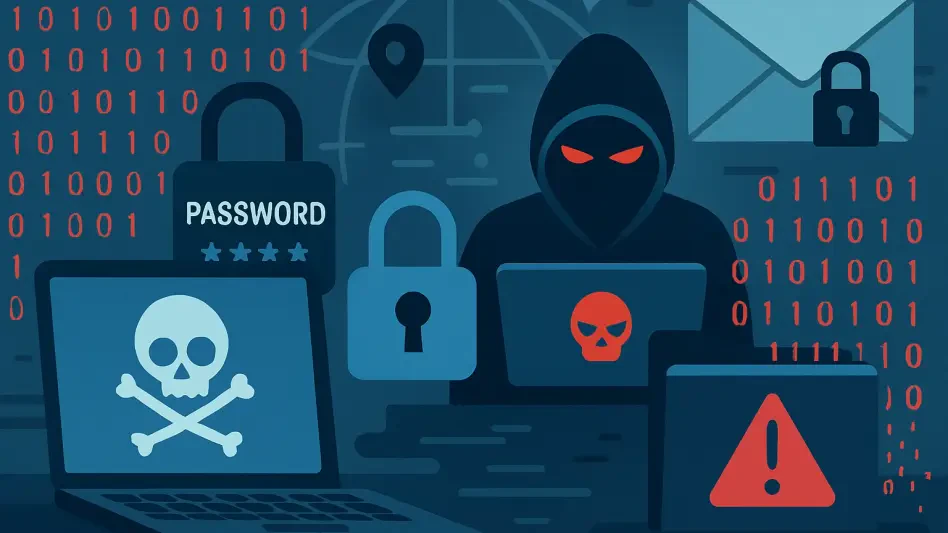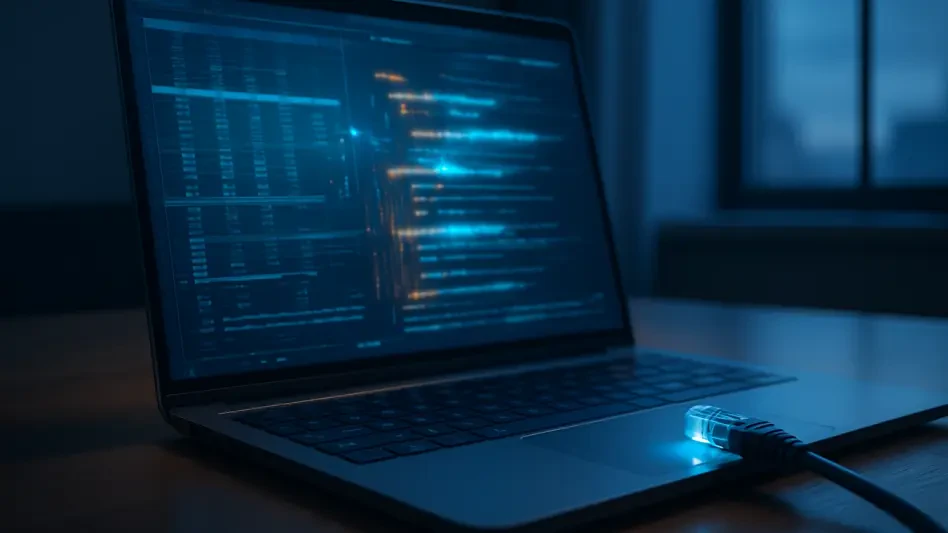What happens when a young mind turns a digital playground into a criminal empire? In a world where data is currency, Conor Brian Fitzpatrick, known online as “Pompompurin,” built BreachForums, a notorious hub for stolen information that shook the foundations of digital security, leaving a trail of devastation with billions of compromised personal records at just 22 years old. His resentencing to three years in prison marks a critical chapter in the battle against cybercrime, pulling back the curtain on the shadowy marketplaces that thrive online and the complex fight to hold their architects accountable.
The Weight of a Digital Empire
The story of BreachForums isn’t just about one man; it’s about the staggering scale of harm unleashed through a single platform. With over 330,000 members and 14 billion personal records traded, the site became a one-stop shop for hackers peddling everything from credit card details to deeply personal data. This wasn’t a niche operation—it was a global threat, facilitating crimes that reached into the lives of countless unsuspecting victims. The significance of Fitzpatrick’s case lies in its exposure of how easily such platforms can flourish, challenging law enforcement to keep pace with an ever-evolving digital underworld.
Beyond the numbers, the human cost stands out. Data breaches enabled by marketplaces like BreachForums have led to identity theft, financial ruin, and worse—some records included child sexual abuse material, a grim reminder of the darkest corners of the internet. This case serves as a wake-up call, highlighting why cracking down on these hubs is not just a technical issue but a moral imperative for protecting society.
Unraveling the Mind Behind the Alias
Conor Brian Fitzpatrick wasn’t a stereotypical criminal mastermind lurking in a hidden lair. A 22-year-old with an autism diagnosis, he operated from the shadows of his online persona, “Pompompurin,” crafting a space where cybercriminals could trade their illicit wares. Those close to the case describe a young man whose technical brilliance was matched by a troubling disregard for the consequences of his actions. His creation, BreachForums, emerged as a successor to the dismantled RaidForums, quickly becoming the largest English-language cybercrime marketplace by 2025.
What drove him to build such a destructive platform? Court documents suggest a mix of curiosity, skill, and a lack of accountability in the anonymous digital realm. Prosecutors painted a picture of someone who knowingly facilitated harm, prioritizing profit and notoriety over ethics. This duality—youthful naivety versus calculated crime—became a central tension in how the legal system would judge him, raising questions about responsibility in the age of digital anonymity.
A Legal Rollercoaster of Leniency and Reckoning
The legal journey of Fitzpatrick began with a guilty plea in 2023 to serious charges, including conspiracy to commit access device fraud and possession of illegal material. Initially, the court handed down a shockingly light 17-day sentence—essentially time served—coupled with 20 years of supervised release, citing mitigating factors like his age and personal challenges. Prosecutors, stunned by the leniency, argued that such a minimal penalty failed to reflect the gravity of crimes that endangered millions.
The turning point came when Fitzpatrick’s post-plea behavior revealed a lack of remorse. Using a VPN to access online chatrooms and questioning the severity of his actions, he undermined any goodwill from the initial ruling. Prosecutors appealed, pushing for a nearly 16-year sentence, and the U.S. Court of Appeals agreed to revisit the case, ultimately vacating the first decision. The resentencing to three years in prison, along with forfeiture of assets like domain names and cryptocurrency, signaled a shift toward accountability, though it still fell short of the harsher penalty sought.
This saga reflects a broader struggle within the justice system: how to balance personal circumstances with the immense societal harm caused by cybercrime. The appellate court’s stance underscored a need for deterrence, emphasizing that even young offenders must face consequences proportionate to their impact. Fitzpatrick’s case became a litmus test for how courts handle the intangible yet devastating effects of digital offenses.
Voices of Justice in a Digital Age
From the courtroom, starkly different perspectives emerged on how to deal with a figure like Fitzpatrick. Prosecutors framed his actions as a direct threat to global security, arguing that platforms like BreachForums enable a cascade of crimes—identity theft, fraud, and even violence. “This isn’t just hacking; it’s a pipeline for devastation,” one legal statement asserted, pushing for a sentence that would send a clear message to other would-be cybercriminals.
In contrast, the defense highlighted Fitzpatrick’s personal struggles, painting a portrait of a troubled youth who may not have fully grasped the ripple effects of his actions. Initially, the district court leaned into this narrative, prioritizing rehabilitation over punishment. However, the appellate court’s intervention shifted the focus, with judges stressing that the “seriousness of the offense” could not be overlooked, regardless of individual factors. This clash of viewpoints encapsulates the challenge of sentencing in cybercrime cases, where the damage is vast but the offender might not fit the traditional criminal mold.
Public reaction, drawn from legal commentary and online discussions, mirrors this divide. Some see Fitzpatrick as a product of a broken system that fails to guide young tech talent, while others view him as a deliberate architect of harm who exploited digital loopholes. These debates reveal the difficulty of achieving justice in a realm where crimes are borderless and often invisible until the damage is done.
Battling the Hydra of Cybercrime Marketplaces
Shutting down BreachForums was a victory, but not a final one. Like a hydra, the platform’s demise spawned copycat sites almost immediately, proving that dismantling a single operation does little to stop the broader ecosystem. Law enforcement faces an uphill battle as these marketplaces adapt, using encrypted networks and anonymous cryptocurrencies to evade detection. Statistics paint a grim picture: even by 2025, billions of personal records remain at risk as new forums emerge with alarming speed.
What can be done to stem this tide? For individuals, basic steps like enabling two-factor authentication and regularly checking for data leaks offer some protection against fallout from breaches. On a systemic level, international collaboration is critical—cybercrime knows no borders, and neither should enforcement efforts. Tougher laws targeting the financial underpinnings of these sites, such as cryptocurrency transactions, could also disrupt their operations. Experts argue that without addressing the demand for stolen data, supply will always find a way to persist.
Beyond policy, education plays a vital role. Teaching young tech enthusiasts about ethical boundaries in the digital space could prevent the next Fitzpatrick from emerging. Governments and private sectors must invest in programs that channel technical talent into constructive paths, reducing the allure of illicit online ventures. This multifaceted approach—combining enforcement, prevention, and protection—offers a glimmer of hope in an otherwise daunting fight.
Reflecting on a Digital Reckoning
Looking back, Conor Brian Fitzpatrick’s resentencing to three years in prison stood as a pivotal moment in holding cybercrime operators accountable, even if the penalty didn’t fully satisfy all parties. The legal battle exposed the deep challenges of prosecuting crimes that unfold in virtual spaces, where harm was widespread yet often unseen. It also laid bare the resilience of illicit marketplaces, which continued to thrive despite targeted takedowns.
Moving forward, the focus must shift to sustainable solutions that outpace the adaptability of cybercriminals. Strengthening global partnerships to track and disrupt these networks, alongside harsher penalties for operators, could deter future platforms from taking root. Equally important was the need to protect vulnerable data through innovation in cybersecurity—ensuring that the next breach doesn’t become the next billion-record disaster. Fitzpatrick’s case served as a stark reminder that the digital frontier demands vigilance, collaboration, and a commitment to justice that evolves as rapidly as the threats it seeks to defeat.








